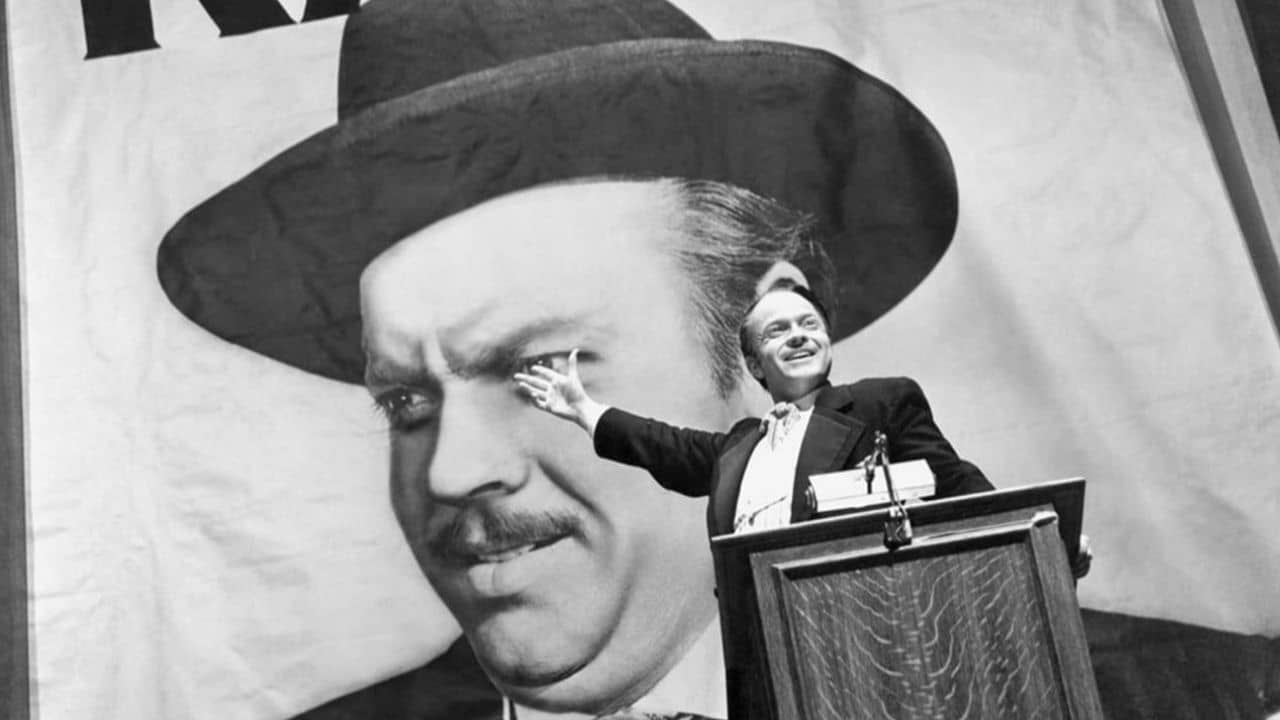22 Incredible Filmmakers That Never Won a Best Director Oscar

In theory, the Academy of Motion Picture Arts and Sciences Annual Awards, better known as the Oscars, recognize the greatest in film achievement, going to the best directors, performers, and creatives in any given year. And yet, some of the most important filmmakers of all time have never been recognized by the Academy.
Sure, some of them made movies that won other awards, and some even received honorary or lifetime achievement Oscars. But these best directors never took home the Best Director Oscar hardware.
1. Alfred Hitchcock

For years, the Master of Suspense’s Vertigo sat on the top of critics’ rankings of the greatest movies ever made. Wildly popular in his own time, Alfred Hitchcock didn’t just make pulpy thrillers that tantalized viewers and excited audiences. He also brought psychological depth to films such as Psycho, Rope, and The Man Who Knew Too Much.
Few directors have shown an effortless understanding of the relationship between the audience and the camera. Images of Cary Grant diving from a crop duster in North by Northwest or Jimmy Stewart watching in horror at a murder in Rear Window defined the language of cinema, even today. That was good enough for Hitchcock to garner five Best Director nominations between 1940 and 1960, but not enough for a win.
2. Orson Welles

How important is Orson Welles? When people talk about the best thing in a particular category, they call it Citizen Kane, referring to Welles’s debut feature. It’s easy to see how Citizen Kane became the best film ever made. Its dizzying camera moves and intelligent uses of shadow take viewers through the labyrinth of the mind of sad Charles Foster Kane, played by Welles.
Even after that titanic achievement, Welles continued to improve. Studio meddling prevented his follow-up, The Magnificent Ambersons, from reaching the same heights as Citizen Kane, but his ongoing innovations are present in films such as The Lady From Shanghai, Touch of Evil, and the documentary F for Fake.
In addition to his directing, Welles commanded the screen with his booming voice and undeniable presence. The Academy gave Citizen Kane Best Screenplay and Welles an Honorary Oscar in 1971, but when it came to best director, he was only nominated.
3. Jean-Luc Godard

A leader in the French New Wave movement of the late 1950s and 1960s, Jean-Luc Godard helped open cinema to the average person. Where Hollywood and its rivals focused on beautiful people living glamorous lives, Godard turned his attention toward ordinary folk in mundane circumstances.
Godard’s debut feature, Breathless, treats a thief’s run from the law not as a high adventure but as an ordinary occurrence. He strips all sense of wonder from his sci-fi noir Alphaville. When he moved on to different approaches, as in the self-aware satire Weekend or the essay-in-film Goodbye to Language, Godard kept that experimental spirit, continuing to push the limits of cinematic art.
All that innovation resulted in just an Honorary Oscar in 2010, but never an award for Best Director.
4. Stanley Kubrick

With The Shining, Stanley Kubrick made one of the best horror movies of all time. He made the best sci-fi movie of all time with 2001: A Space Odyssey. Paths of Glory is one of the greatest war movies, while Dr. Strangelove, or How I Learned to Stop Worrying and Love the Bomb is one of the greatest comedies of all time. Except for a few preliminary outings, every movie Kubrick made was a masterpiece, or came close.
And how does the Academy respond to such an impressive filmography? With one Academy Award, giving 2001 Best Visual Effects. Sure, Kubrick scored nominations for Best Director three times throughout his career, but he never won.
A technical master who made films that both dazzled and challenged viewers never won Best Director. If that’s not a charge against the Academy, then nothing is.
5. Ingmar Bergman

Like Hitchcock in Hollywood, the Swedish director Ingmar Bergman delved into the psychological depth of his characters. However, Bergman mixed in a spiritual longing that captured the religious imagination of his day. Whether he was making the horror film Hour of the Wolf, the existential comedy Wild Strawberries, or the three-hour drama Fanny and Alexander, Bergman understood the discontent inside everyone.
Lest that description sound too heady or dull, Bergman matched his thematic concerns with a knack for constructing memorable cinematic images. Even those with no interest in foreign films can recognize Death playing chess with a knight in The Seventh Seal or the woodsman holding the body of his late daughter in The Virgin Spring.
Bergman’s work captured the full potential of cinema to speak on the human condition, which the Academy acknowledged with three Best Foreign Picture wins. But never once did they give Bergman Best Director.
6. Akira Kurosawa

Still considered the most important Japanese filmmaker who ever lived, Akira Kurosawa pioneered the cinematic language of historical epic. Movies such as Rashomon, in which figures on trial retell a story from multiple angles, or a samurai take on King Lear called Ran, feature images and approaches that still influence filmmakers today.
While his period pieces tend to get most of the attention, Kurosawa also made powerful modern movies. The empathetic Ikiru captures the dignity of a dying company man, while the sweat-soaked noir Stray Dog takes a palpable look at the big city.
Thanks to these genre-defining works and collaborations with the charismatic leading Toshiro Mifune, Kurosawa brought Asian cinema to the rest of the world. And yet, the Motion Picture Academy honored him with nothing more than a Lifetime Achievement Oscar in 1990.
7. Ridley Scott

Ridley Scott has a career that any filmmaker would envy. Coming from the world of television commercials, the English director has made some of the most respected and profitable films of the past fifty years. He followed his debut The Duelists with 1979’s Alien, a genre-defining film that continues to generate sequels to this day.
Throughout his career, Scott has worked in a wide range of genres, including feminist crime in Thelma & Louise, the historical epic Kingdom of Heaven, and the spy thriller Body of Lies. Not all of his films hit, but Scott always does what he wants, as demonstrated by his metaphysical Alien prequel Prometheus or the over-the-top biopic The House of Gucci.
Despite his success among audiences and critics, Scott has just three Best Director nominations and zero wins.
8. Andrei Tarkovsky

The genius behind films such as Solaris and Stalker, Russian filmmaker Andrei Tarkovsky strove to make genre movies that transcended those genres. An arduous formalist who created complex pictures sometimes out of step with modern audiences, Tarkovsky challenged viewers to reconsider the possibilities of cinema.
Like Bergman in Sweden, Tarkovsky sought to plum the spiritual depths of his characters. Andrei Rublev, a three-hour-plus biography of the titular religious painter, came to theaters despite disruption from the Russian government. The haunting Solaris became a hit, despite its surreal approach to sci-fi.
Tarkovsky’s films won awards from countries across the globe, but never from the Motion Picture Academy, which never even nominated him for Best Director.
9. Paul Thomas Anderson

Except perhaps for Wes Anderson (and he does have an Oscar for a short film), Paul Thomas Anderson is now the sole modern master without a Best Director Academy Award. Anderson’s 1997 sophomore feature Boogie Nights established him as one of the young auteurs of his generation, alongside Quentin Tarantino and later Christopher Nolan.
While those other two took home the hardware, for Once Upon a Time… In Hollywood and Oppenheimer, respectively, Anderson has nothing but a handful of nominations. That fact is surprising given how well-regarded his work is among critics.
While Boogie Nights and his follow-up Magnolia borrowed too much from Martin Scorsese, Anderson showed a dexterous mind and innovative cinematic approach in There Will Be Blood, The Master, and Phantom Thread.
10. Agnès Varda

Like Jean-Luc Godard, Agnès Varda helped inaugurate the French New Wave movement in the 1960s before moving on to various subjects. No matter what she shot, Varda retained an interest in the natural and searched for ways to bring the truth to the screen.
Her first movies, such as Cléo from 5 to 7 and Kung Fu Master, were shot on location and mixed non-professional actors with amateurs, finding notes of grace and humor in her characters. Her documentaries, such as Black Panthers and Faces Places, took audiences into the heart of different communities, putting otherwise ignored or maligned figures on the screen.
The Academy gave Varda an honorary Oscar in 2017, making her the first female director to earn the award. But that’s still not enough to acknowledge a person Martin Scorsese called “One of the Gods of Cinema.”
11. David Lynch

David Lynch isn’t for everyone. Even when making a would-be blockbuster with 1984’s Dune, Lynch cannot help but put his idiosyncratic stamp on the projects. Lynch loves dream logic, mannered performances, and an interest in the surreal.
And yet, Lynch continues to inspire filmmakers across every genre. From his memorable feature debut Eraserhead to his four-hour digital epic Inland Empire, Lynch captures a sense of dread and longing that others hope to replicate.
Furthermore, Lynch sometimes does win over the public, as when the TV series Twin Peaks became a sensation in 1989. But he has never won over the Academy, who nominated Lynch for Best Director three times, and never gave him the award.
12. Howard Hawks

It’s fair to say that Howard Hawks defined movies as we know them today. Although Hawks had been working in Hollywood since 1916, it was his transition to the sound era that helped set the standard for Blockbuster pacing. According to legend, Hawks used a stopwatch to time his actors’ dialogue, paying close attention to their rhythms.
Thanks to this method, Hawks created some of the most propulsive movies of all time, including the Western Rio Bravo, the noir The Big Heat, and the comedy His Girl Friday. No matter what genre he worked in, Hawks knew how to keep the audience engaged and entertained, developing a cinematic structure employed by many auteurs after him.
After nominating him for Best Director for Sergeant York in 1941, who lost with fellow nominee Orson Welles to John Ford, the Academy gave Hawks an honorary award in 1971.
13. Krzysztof Kieślowski

The Polish-born Kieślowski came to the attention of American cineastes during the 90s indie boom. Kieślowski had been making excellent films such as the realist The Scar or the ten-part collection The Dekalog in his native country. But it was his later breakouts that forced the rest of the world to take notice.
His 1991 film The Double Life of Veronique took the doppelgänger themes popularized by Hitchcock. His final three films, the Three Colors trilogy, paint complex portraits, each situated by a different feeling, represented by a color in the French flag.
These crossover films earned Kieślowski Best Director nominations, but no wins. Perhaps the Academy thought Kieślowski was at the start of his career, but he died at the age of 54 in 1996.
14. Fritz Lang

In 1927, Fritz Lang directed Metropolis, a silent pro-labor fantasy film written by his wife, Thea von Harbou. That movie featured Brigitte Helm as Maria the Machine Person, one of the first robots in cinema. Even if Metropolis were the lone notable movie Lang ever made, then he would still deserve at least one Best Director Oscar. But the German filmmaker was just at the start of his career, one that would continue when he came to America.
A founder of German Expressionism, Lang helped pioneer the surreal designs and strong blacks of the sub-genre, as seen in films such as Dr. Mabuse the Gambler and M., both made in his home country. Lang took that approach to Hollywood, where he established the visual style of film noir, as seen in classics like The Big Heat and Scarlet Street.
Lang’s transition to Hollywood helped bring mood and complexity to American movies. And yet, the Academy never even gave Lang an honorary Oscar.
15. John Carpenter

The Academy has a long history of ignoring genre, especially horror. And that’s to their discredit, as indicated by John Carpenter’s career. From 1978 to 1988, Carpenter went on a nine-film run, producing movies of either great or excellent quality. His movies Halloween, The Thing, and Big Trouble in Little China produced some of cinema’s most enduring characters and continue to thrill audiences today.
Carpenter achieved his success through measured, intelligent filmmaking. His movies feature precise camera movements, evocative blocking, and unforgettable soundtracks, often composed and performed by Carpenter.
Carpenter is one of the best pure directors of the past fifty years, a man who inspired legions of filmmakers. And yet, outside of the award for Best Live Action Short Film for The Resurrection of Broncho Billy, which he co-wrote and edited, Carpenter has been shut out by the Academy.
16. Pedro Almodóvar

Given its conservative streak, it’s easy to see why the Motion Picture Academy wouldn’t give much attention to Spanish director Pedro Almodóvar. Almodóvar makes movies of excess: excessive humor, excessive emotion, and excessive energy. His unapologetic melodramas such as Pepi, Luci, Bom and Law of Desire mix jokes and frank sexuality, refusing to adhere to a single tone.
While such an approach frustrates some viewers, it gives others a sense of recognition and liberation. Almodóvar films feature nuanced female characters played by outstanding actresses, including Cecilia Roth and Penélope Cruz. He tells stories of LGBTQ+ characters that many other filmmakers ignore.
Almodóvar’s All About My Mother won Best Foreign Picture and Talk to Her won Best Original Screenplay, but he never won Best Director.
17. Paul Verhoeven

Despite choosing occasional provications, the Academy doesn’t often reward confrontation. And Paul Verhoeven lives to provoke.
After making several boundary-pushing and political films in his native Amsterdam, Verhoeven came to America to work in the Hollywood system. Rather than tone down his aesthetic, Verhoeven created subversive blockbusters such as Robocop, Showgirls, and Total Recall.
On the surface, those don’t sound like films that deserve Awards recognition. However, Verhoeven mixes a keen intelligence in with his shocking spectacles, proving that Hollywood movies can be both thought-provoking and entertaining.
That should be the type of filmmaking that the Academy supports, but just two Verhoeven films have ever been nominated: Best Foreign Film for his Dutch film Turkish Delight and Best Visual Effects for his worst American movie Hollow Man.
18. Buster Keaton

To this day, the Academy ignores stunts, despite the pure cinematic spectacle they create. Even when performed by an A-lister like Tom Cruise in the Mission: Impossible movies or occurring in blockbusters like the John Wick series, stunts don’t get the recognition they deserve.
By that count, one can understand why vaudevillian turned filmmaker Buster Keaton would never win Best Director. But understanding doesn’t make it seem right. Drawing from his years on stage, Keaton combined tight comic timing with ambitious gags and an indefatigable honesty. When the house dropped around him in Steamboat Bill Jr., Keaton ensured that audiences saw the real house fall. When his character clung to the cow-catcher of a train in The General, Keaton ensured that audiences could see the danger he experienced.
The Academy gave Keaton an Honorary Award in 1959, but that remains far too little, far too late.
19. David Cronenberg

On one hand, David Cronenberg started making low-budget gross-out films in his native Canada. On the other, few directors have been able to visualize psychological depth with as much immediacy as Cronenberg. Even during his initial exploitation phase, when he made icky features like The Brood and Shivers, Cronenberg plumbed the depths of the human psyche.
With a filmography that includes the cyberpunk classic Scanners, the Don DeLillo adaptation Cosmopolis, and the sci-fi great The Fly, Cronenberg has worked on high-brow and low-brow material.
Disappointing as the Academy’s refusal to acknowledge Cronenberg may be, it doesn’t seem to have stopped him. As demonstrated by his most recent picture, the bizarre and striking Crimes of the Future (2022), the 80-year-old iconoclast follows his own path.
20. Sergio Leone

While people use the term “Spaghetti Western” as an insult, the films of Italian director Sergio Leone deserve nothing but respect. Leone gave the genre a new grittiness, filling movies such as The Good, The Bad, and The Ugly and Once Upon a Time in the West with sweaty, dirty men who leered at women and cackled at enemies. At the same time, Leone intensified the mythic qualities of the genre, turning the hanging of a criminal or the escape of horse thieves into the stuff of legend.
Of course, Leone achieved his goals through top-notch collaborators such as Clint Eastwood and composer Ennio Morricone. But it was Leone’s sense of timing, compelling shot selection, and talent for tone control that made his ambitious projects work.
Even decades after he died in 1989, Leone continues to enrapture filmgoers and inspire filmmakers, without even a single Academy Award nomination.
21. Wim Wenders

Oppenheimer may have won the Best Picture Oscar for 2023, and the Best Foreign Language Film Oscar may have gone to Anatomy of a Fall, but the actual best movie of that year was Perfect Days. The story of a humble public toilet cleaner in Tokyo, Perfect Days demonstrated the power of cinema to plumb the depths of a single, almost silent individual.
Perfect Days comes from Wim Wenders, a German filmmaker with an eclectic oeuvre and a talent for crafting thoughtful, quiet films. After his 1970 debut Summer in the City, Wenders made moving movies around the world, including the beautiful neo-Western Paris, Texas and the romantic fantasy Wings of Desire. Wenders has also directed many powerful documentaries, such as Buena Vista Social Club and Tokyo-Ga, about fellow director Yasujirō Ozu.
This impressive filmography has garnered a few nominations but no Best Director Oscars.
22. Kelly Reichardt

A true student of Neo-Realism, director Kelly Reichardt makes well-observed, small-stakes movies about the American West. Even when following settlers in the Northwest, as in Meek’s Cutoff or First Cow, Reichardt’s films concern themselves with friendships found and courage lost, not with shoot-outs or daring escapes.
Working with outstanding performers such as Michelle Williams, Lily Gladstone, and Hong Chau, Reichardt substitutes big set pieces with explorations of the human psyche. Without allowing her films to become didactic or dull, she captures all of the complexity in the simple life.
Leaving aside the fact that the Academy has only awarded two women, Kathryn Bigelow and Chloé Zhou, with the Best Director Oscar, Reichardt’s subtle approach goes against an institution that prefers loud simplicity. But in a better world, Reichardt would already have one Best Director Oscar on her desk, with room for more to come.





